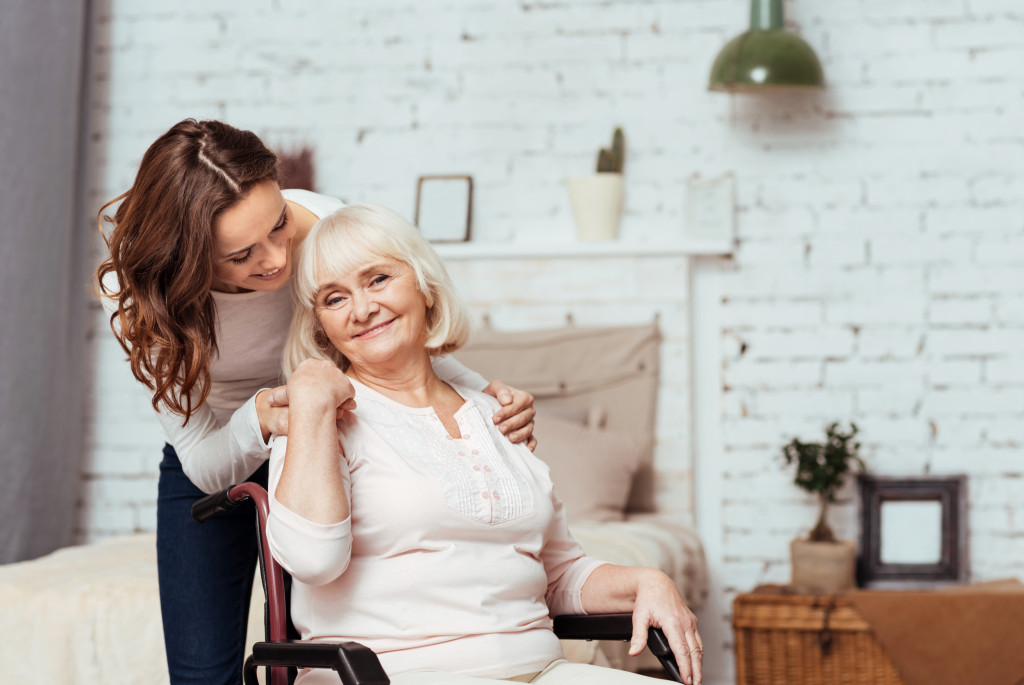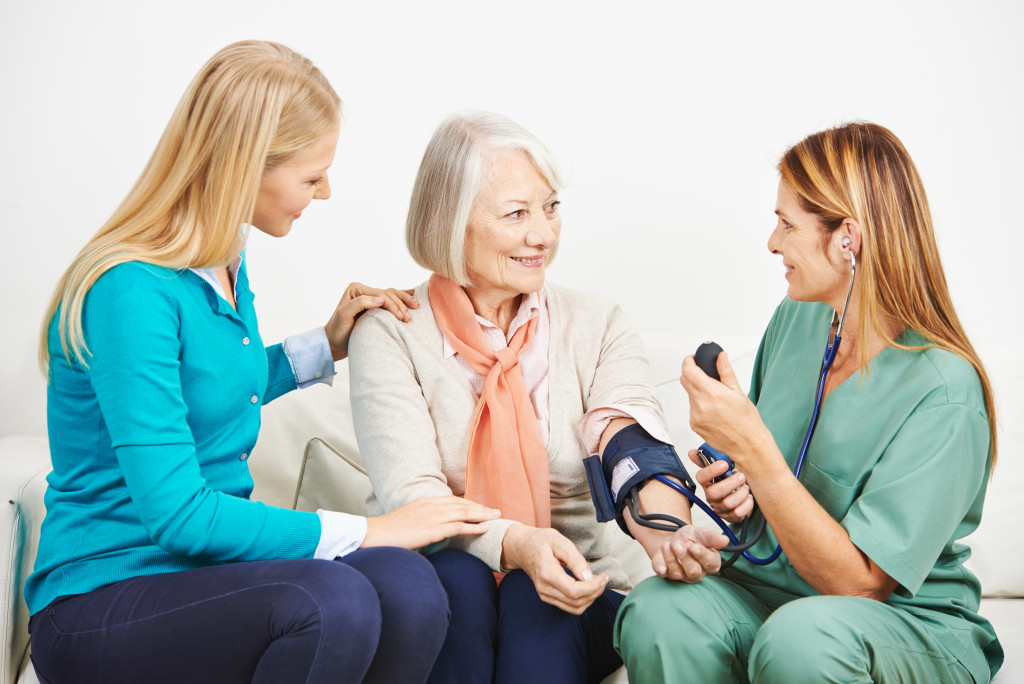- Understanding your retired parent’s medical condition is crucial for managing their routines and empathizing with their situation.
- Proper management of medications and regular, suitable exercise are critical factors in promoting elderly individuals’ health.
- Seeking professional healthcare assistance can provide reliable help with medical tasks and offer guidance on managing their condition.
- Self-care and seeking support are essential for caregivers to alleviate stress and maintain balance.
As people age, the roles between parent and child often reverse, with adult children having to provide care for their elderly parents. This is part of a natural life cycle; approximately 34.2 million Americans have provided unpaid care to adults aged 50 or older. This represents about 14% of the total US population. The reasons behind this trend are manifold, ranging from increased life expectancy to rising healthcare costs. By caring for retired parents, children ensure their safety and well-being and give back to those who once nurtured and raised them. It’s a profound expression of gratitude and a testament to the enduring bonds of family.
However, the responsibility might not be easy, both emotionally and physically. In addition to balancing work, family life, and caregiving duties, adult kids may also face financial strain, lack of support from other family members, and dealing with their issues while trying to provide the best care for their parents.
Therefore, it’s essential to have a guide that can help navigate this often overwhelming journey. Here are a few tips to consider when taking care of your retired parent:
Learn About Their Condition
Understanding the medical condition of your retired parents is a crucial first step in providing optimal care. This knowledge will guide you in managing their daily routines and help you empathize with their situation, improving your relationship.
Understand the Basics of Their Condition
Start by familiarizing yourself with the basics of your parents’ health condition. If they are diagnosed with a particular disease, such as diabetes or Alzheimer’s, you must learn about its causes, symptoms, and progression. Understanding these aspects can help you anticipate potential problems and intervene early.
Learn About the Treatment
Be informed about the treatment options available for their condition. This includes understanding the purpose of prescribed medications, their possible side effects, and the time and way they should be taken. Also, know about any necessary dietary changes, physical therapies, or surgeries that may be required.
Stay Updated on Research
Medical research is constantly evolving. Stay updated on the latest research related to your parents’ condition. This might include new treatment methods, diet tips, or lifestyle changes that can help manage the disease. Subscribe to reputable health and medical newsletters for this purpose.
Communicate with Healthcare Professionals
Keep open communication with your parents’ healthcare providers. They can provide valuable insights into managing the condition, updates on your parents’ health progress, and answer any doubts you may have. Regular appointments and being proactive during those meetings can ensure you get the most accurate and helpful information.
Manage Medications and Exercise
Managing medications and introducing regular exercise is crucial when caring for retired parents. Both aspects directly impact the overall health of elderly individuals.
Proper medication management is essential for maintaining the health of your retired parents. Elderly individuals often have multiple prescriptions, making medication mismanagement a common issue. Mismanagement can lead to over- or under-dosing, potentially resulting in serious health complications. By developing a structured medication routine, ensuring medications are taken at the correct times, and regularly consulting with healthcare providers to review the prescriptions, you can prevent medication complications and improve the effectiveness of the treatment.
Regular exercise is another critical factor in promoting the health and well-being of your retired parents. Physical activity can significantly enhance cardiovascular health, improve balance and flexibility, boost mood, and even slow cognitive decline. Simple exercises such as walking, stretching, or light strength training tailored to their ability can work wonders. However, it’s essential to consult with their healthcare provider before starting any exercise regimen to ensure it’s safe and suitable for their condition.
In conclusion, carefully managing medications and encouraging regular exercise can significantly contribute to maintaining and even enhancing the health of your retired parents.
Seek Help in Healthcare
Caring for retired parents can be daunting, and seeking professional assistance, including hospice care, can be invaluable. Hospice care focuses on the palliation of an ill patient’s disease and attending to their emotional and spiritual needs. It is an approach that provides medical care and emotional and spiritual support to the patient and their family.
For your retired parents, seeking professional healthcare help can significantly relieve some of the caregiving burden. It can provide reliable assistance with complex medical tasks, ensure that your parents’ health needs are met, and offer guidance on managing their condition. This may also free up some time for you to address personal needs, reduce stress, and improve the quality of time spent with your parents.
On the other hand, retired parents need to be proactive in seeking healthcare help themselves. They can do so by sharing their health concerns and symptoms with healthcare providers, asking questions about their condition and treatment, and expressing their preferences for care. This involvement can foster a better understanding of their health, enable informed decision-making, and promote a higher quality of life.
Final Thoughts
Taking care of retired parents is a challenging but rewarding responsibility. By understanding their condition, managing medications and exercise, and seeking professional healthcare help, you can ensure the best care for aging parents. It’s also important to prioritize self-care and seek support from family, friends, or support groups to alleviate stress and maintain balance.


